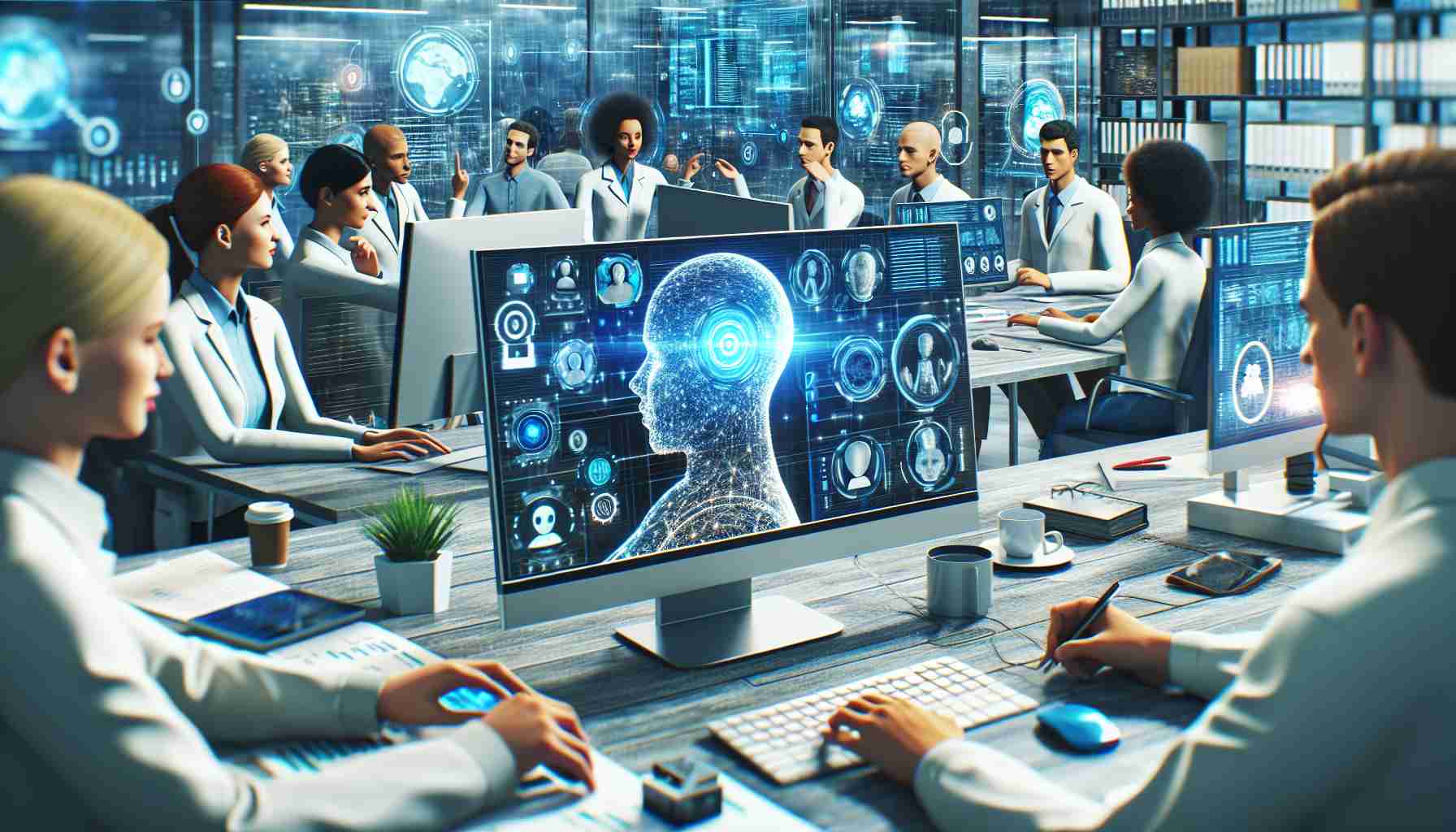Artificial intelligence (AI) is poised to revolutionize the workplace, leading many companies to anticipate a decrease in their workforce over the next five years, according to a recent survey by staffing provider Adecco Group. The report, based on responses from executives at 2,000 large companies worldwide, reveals that 41% expect to have smaller workforces due to advancements in AI technology.
AI technology, particularly Generative AI, which has the ability to generate text, photos, and videos in response to prompts, has sparked both excitement and fear among professionals. While some envision AI eliminating mundane and repetitive tasks, others worry about the obsolescence of certain jobs.
Prominent technology companies like Google and Microsoft have recently undergone rounds of layoffs as they shift their focus towards AI systems such as OpenAI’s ChatGPT and Google’s chatbot Gemini.
Adecco’s survey, one of the largest on the topic of AI, aligns with a 2023 World Economic Forum study that predicts job losses for 25% of companies due to AI, while 50% anticipate the creation of new roles. Despite recognizing AI as a game changer, the majority of senior executives surveyed by Adecco admit to insufficient progress in adopting the technology.
Adecco CEO Denis Machuel acknowledges the profound impact of AI on all types of jobs but emphasizes that it can both eliminate and create job opportunities. He compares the current concerns about AI to the initial fears of digitalization a decade ago, highlighting how digital advancements spurred job creation.
To mitigate the disruption caused by AI, companies should focus on training their existing workforce to leverage AI capabilities, rather than solely relying on external specialists. Adecco, which employs AI itself, sees immense potential in using the technology to enhance its services and works closely with clients to provide training and upskilling programs.
The survey spans various countries including the United States, Britain, France, Germany, Japan, Spain, Canada, Australia, and Singapore, and encompasses sectors such as defense, pharmaceuticals, healthcare, industry, and logistics.
As AI continues to reshape the future of work, companies must prepare for this transformative shift by embracing AI training and capitalizing on the opportunities it presents.
FAQ
1. What is Artificial Intelligence (AI)?
Artificial intelligence, often referred to as AI, is a branch of computer science that aims to develop machines capable of performing tasks that would typically require human intelligence. AI systems can analyze, learn from data, and make decisions or take actions in response to specific situations.
2. What is Generative AI?
Generative AI is a subset of AI that focuses on machines’ ability to generate new content, such as text, images, or videos, based on input or prompts. It utilizes algorithms to create original and creative output.
3. How does AI impact the workforce?
AI technology has the potential to automate repetitive tasks, leading to a reduction in certain job roles. However, it can also create new job opportunities as companies adapt to AI-driven systems and seek professionals with AI-related skills.
4. How can companies prepare for the impact of AI?
Companies can prepare for the impact of AI by investing in AI training programs for their existing workforce. This approach enables employees to acquire the skills necessary to collaborate effectively with AI systems and leverage their capabilities.
5. Is the adoption of AI widespread?
While AI adoption is growing, the majority of senior executives surveyed in the Adecco report admit to not having made sufficient progress in adopting AI technology. However, as AI continues to advance, it is expected that its adoption will become more prevalent across industries.
The rise of artificial intelligence (AI) is expected to have a significant impact on various industries, leading to both job losses and the creation of new roles. A recent survey by staffing provider Adecco Group reveals that 41% of executives at large companies worldwide anticipate a decrease in their workforce over the next five years due to advancements in AI technology.
One area of AI that has garnered both excitement and fear is Generative AI, which has the ability to generate text, photos, and videos in response to prompts. While some professionals envision AI eliminating mundane and repetitive tasks, others express concerns about the potential obsolescence of certain jobs.
Prominent technology companies like Google and Microsoft have already undergone layoffs as they shift their focus towards AI systems such as OpenAI’s ChatGPT and Google’s chatbot Gemini.
Adecco’s survey aligns with a 2023 World Economic Forum study, which predicts job losses for 25% of companies due to AI, while 50% anticipate the creation of new roles. However, despite recognizing AI as a game changer, many senior executives admit to insufficient progress in adopting the technology.
Adecco CEO Denis Machuel acknowledges the profound impact of AI on all types of jobs but emphasizes that it can both eliminate and create job opportunities. He draws a parallel between the current concerns about AI and the initial fears of digitalization a decade ago, highlighting how digital advancements spurred job creation.
To navigate the disruption caused by AI, companies should focus on training their existing workforce to leverage AI capabilities rather than solely relying on external specialists. Adecco, which utilizes AI itself, recognizes the immense potential in using the technology to enhance its services and actively works with clients to provide training and upskilling programs.
The survey conducted by Adecco spans various countries including the United States, Britain, France, Germany, Japan, Spain, Canada, Australia, and Singapore. It encompasses sectors such as defense, pharmaceuticals, healthcare, industry, and logistics, indicating the widespread impact of AI across industries.
As AI continues to reshape the future of work, it is crucial for companies to prepare for this transformative shift by embracing AI training and capitalizing on the opportunities it presents.
For more information on artificial intelligence and its impact on the workforce, you can visit the Adecco Group website: Adecco Group.

